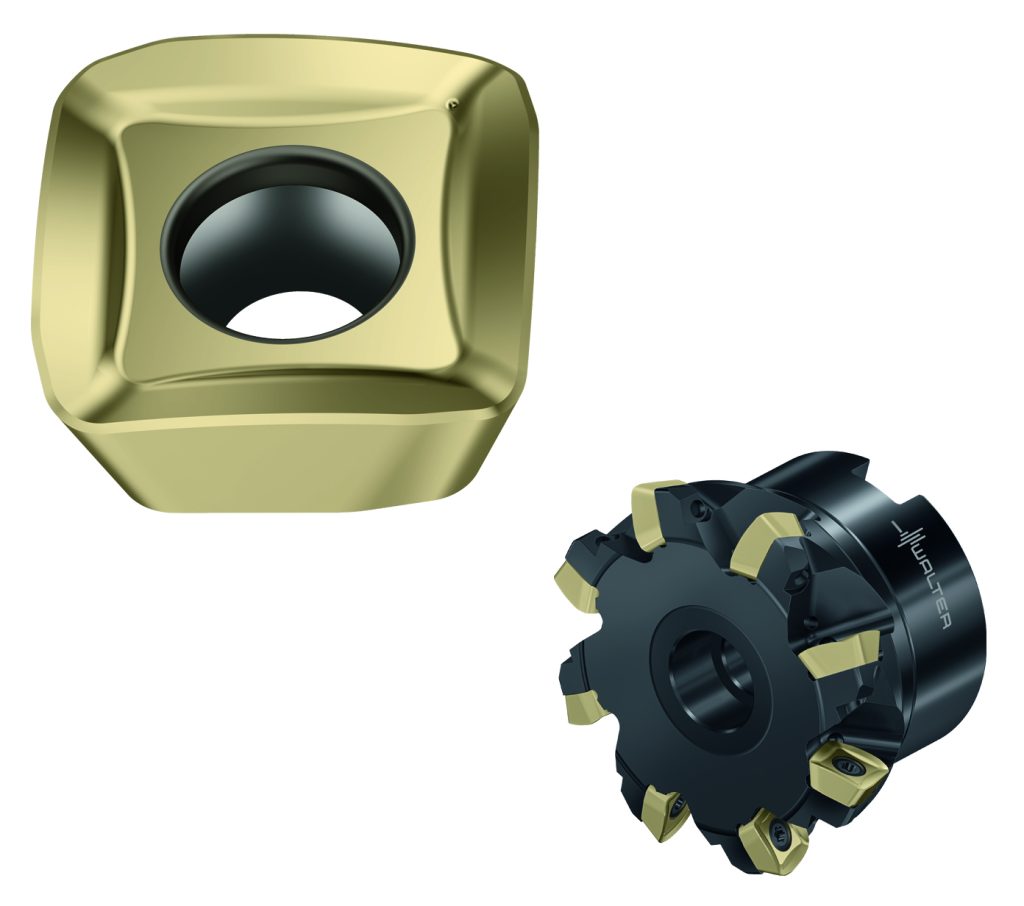SDMX Indexable Insert
SDMX Indexable Insert
There are two indexable insert sizes with facet—SDMX0904ZDR-E27 and SDMX1205ZDR-E27. The M4002 cutter provides a depth of cut of 1.5 or 2.0 mm and is available in diameters of 25-125 mm or 1-4 in. and is ideal for high-speed milling in steel and cast iron, stainless steel and materials with difficult cutting properties. And for demanding machining in mold and die making and general machining.

Walter has introduced an SDMX indexable insert for its Walter M4002 high-feed milling cutter. This square positive, cost-effective universal insert lowers power requirements thanks to its highly positive geometries. The new indexable inserts are thick for maximum process reliability and provides four cutting edges per indexable insert with a curved cutting edge for maximum stability.
There are two indexable insert sizes with facet—SDMX0904ZDR-E27 and SDMX1205ZDR-E27. The M4002 cutter provides a depth of cut of 1.5 or 2.0 mm and is available in diameters of 25-125 mm or 1-4 in. and is ideal for high-speed milling in steel and cast iron, stainless steel and materials with difficult cutting properties. And for demanding machining in mold and die making and general machining.





